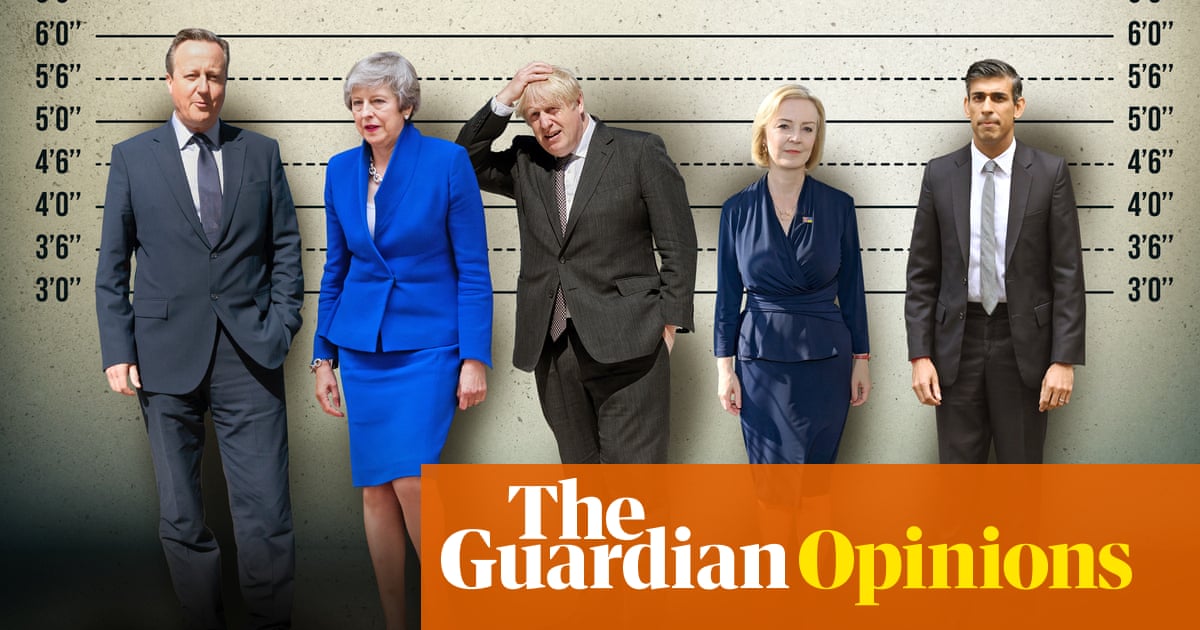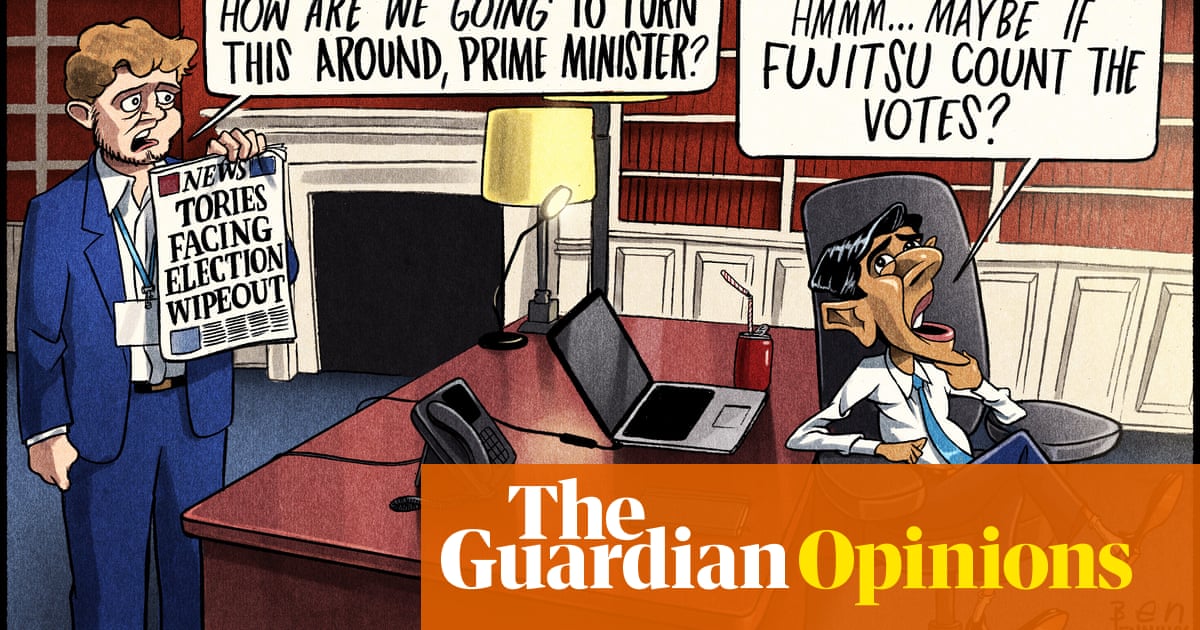
Aparty unspooling in its waning days of power, a prime minister plumbing news depths of unpopularity, the looming threat of an electoral “nightmare scenario” and a newly empowered Reform party hellbent on destroying the national Conservatives.
Canada’s 1993 federal election fundamentally altered the country’s political landscape and shattered its national conservative movement, forcing leaders to spend a decade puzzling over how to rebuild a broken party.
As the UK’s Conservative party faces the prospect of a comparable blowout defeat, political historians say Canada’s recent past offers lessons on the challenges of tempering populist rumbles – and the steep electoral losses that can follow.
Before the 1993 vote, Canada’s main party of the right, the Progressive Conservatives, were in what could generously be called a bad situation. After governing for nearly a decade, a chastened prime minister, Brian Mulroney, had resigned after two failed attempts to amend Canada’s constitution and mounting questions over his ethical conduct.
His successor, Kim Campbell, was thrust into the top job after winning a party leadership race. The country’s first-ever female prime minister, she enjoyed a momentary boost in the polls, but as the general election campaign unfolded it became clear that key portions of the Progressive Conservative vote were fleeing to new parties that reflected geographic and cultural grievances.
In the oil-producing western provinces, the perception that residents’ hard work was being frittered away for the economic benefit of eastern Canada led to a deep resentment of the Progressive Conservatives. Voters turned to the socially conservative Reform party, which had deep roots in the Prairies. And in francophone Quebec, the newly formed Bloc-Québécois seized on growing separatist sentiment.
As votes were tallied at the end of October, Jean Chrétien and his Liberal party emerged with a strong parliamentary majority. The result for the Progressive Conservatives was far worse than feared: they lost all but two seats in the worst ever electoral result for a governing party among western democracies.
“The lessons of 1993 are that the worst-case scenario can happen,” said political analyst Éric Grenier at the Writ. “Just because you’ve been around forever doesn’t mean that you will be around forever. You can have the kind of election that requires you to restart a party and to come back from almost zero.”
The Progressive Conservatives lost official party status, took on immense debt and plunged into a struggle with competing visions for the future of conservatism in Canada.
“The election result put the conservative movement adrift. They couldn’t win. They couldn’t really make headway,” said Grenier. “It was a lost decade for the conservative movement in Canada.”
The Reform movement became the largest rightwing party in parliament, supplanting the Progressive Conservatives. But its focus on the specific grievances of western Canadians meant it saw little success across the country. By 2000, the party changed its name to the Canadian Alliance, in an unsuccessful attempt to broaden its appeal. Soon after, the Canadian Alliance merged with the ailing Progressive Conservatives, in an attempt to unify a rightwing voting bloc. The newly formed Conservative party proved successful, winning three general elections under Stephen Harper.
Harper was himself part of what the UK’s Reform leader Nigel Farage this week referred to as the “reverse takeover of the Conservative party” by Canadian Reform activists.
“I don’t want to join the Conservative party, I think the better thing to do would be to take it over,” Farage told ITV’s Good Morning Britain.
Farage’s recent decision to run in the July general election as leader of the Reform party has renewed fears within conservative politics that Canada’s 1993 electoral rout could foreshadow the destruction of the UK’s Conservative party.
Grenier says the fallout of 1993 should be a warning to Rishi Sunak’s Conservatives, who find themselves far behind a buoyed Labour party.
“It was a stark lesson that just because you’ve been one of the governing parties for centuries in the UK, just because you’ve been able to hold on in the past – it doesn’t mean you can’t have a disastrous result,” he said.
But despite the many apparent parallels – not least the shared names of the political parties – Grenier says the upcoming vote in the UK is more reminiscent of a “cyclical change” than what has been referred to as an “extinction-level” event.
“[The Conservatives] have been in power for a long time, and they’ve had a lot of leaders come in and out,” he said. “At the end of the day, it’s just natural that the party is no longer popular.”
Lori Turnbull, director of Dalhousie University’s school of public administration, argued that, nearly 30 years later, Canada is still living with the effects of the 1993 vote.
It shattered the notion that only the Liberals and the Progress Conservatives were the rightful parties of government. When parliament reconvened, five parties had won seats – a figure that has remained largely true ever since.
The result also reflected tensions between fiscal and social conservatives that remain unresolved decades later.
“At the time, the joining of the Canadian Alliance and the Progressive Conservatives was talked about as a merger. Now it’s described as a takeover,” said Turnbull. “Many former Progressive Conservatives want government to do good; there’s a sense of abandonment for that constituency in a country. They don’t see themselves in the partisan spectrum.”
Turnbull sees Mulroney’s own political baggage and the unique structure of Canada’s political system – including the ability of a regional separatist party in Quebec to outperform national parties – as key factors in the 1993 wipeout.
But the fallout from the election offers clear warnings to all parties in government, she said.
“For the governing Progressive Conservatives to go from a majority government to nothing tells you that there is no such thing as a safe seat in politics. People often think, ‘Well, things can only get so bad.’ No, things can get really bad – and then worse,” she said.
“The nightmare scenario is always a possibility.”












